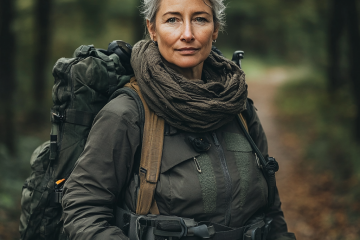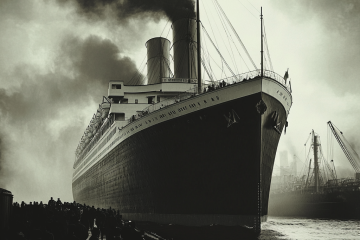
In preparedness, no man is an island
The 5 Fundamental Rules of Prepping: Because Zombies Aren’t Your Biggest Problem
Let’s get real for a minute: if you’ve ever told someone you’re into preparedness, you’ve probably gotten “the look.” You know the one—that slightly concerned expression that says they’re wondering if you have a tin foil hat collection or are secretly building an underground bunker for the zombie apocalypse. (Spoiler alert: zombies are terrible neighbors anyway.)
But here’s the truth: real preparedness isn’t about fear—it’s about freedom. It’s not about waiting for the worst; it’s about building your best life right now. And no, you don’t need to eat MREs every Tuesday just to prove you’re serious about it.
After years of experience (and yes, some questionable early decisions involving way too many survival whistles), I’ve distilled what I’ve learned into five fundamental rules that will transform how you approach self-sufficiency.
Rule #1: Preparedness is a Lifestyle, Not a Destination
You know how people sometimes say, “I’ve reached my goal weight, so I can eat all the pizza I want now!”? Yeah, preparedness doesn’t work that way either. Sorry to burst your bubble, but you can’t just fill a closet with freeze-dried food and declare yourself “prepared for life.” (Though I’ll admit, having a lifetime supply of chocolate and bacon doesn’t sound half bad.)
This lifestyle isn’t about checking boxes off a doomsday shopping list—it’s about continuous growth, learning, and adaptation. Whether you’re figuring out why your tomato plants look like they joined the witness protection program or learning to preserve food without giving yourself botulism, each step is part of the journey.
Preparedness is about skills, not stuff. Chances are if it’s giving you anxiety or fear, it’s because you’re not looking at it as a lifestyle that it was truly intended to be. Which means, frankly, that you’re doing it wrong.
Rule #2: Always Get the Lay of the Land
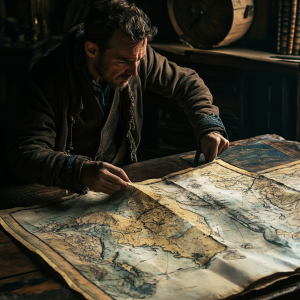
Always get the lay of the land of preparedness to avoid tunnel vision prepping
Ever met someone who’s got enough guns to arm a small country but hasn’t figured out how to purify water? That’s what we call “prep tunnel vision,” and it’s about as useful as a screen door on a submarine. True preparedness is like a well-balanced diet—except instead of food groups, we’ve got the Ten Principles of Preparedness:
- Spiritual Preparedness: Because your spirit needs prepping too (and no, binge-watching survival shows doesn’t count as spiritual growth)
- Mental Preparedness: Training your brain for when Google isn’t available and for the fortitude that it needs in a crisis so that you can think clearly.
- Physical Preparedness: So you can actually carry all that gear you bought and properly secure yourself and those you love.
- Medical Preparedness: Because Band-Aids and wishful thinking aren’t a complete medical strategy
- Clothing and Shelter Preparedness: For when “living off the land” stops being romantic
- Fuel Preparedness: Because rubbing two sticks together gets old real fast
- Water Preparedness: The stuff of life (and no, your soda stockpile isn’t a substitute)
- Food Preparedness: SO much more than just your impressive ramen noodle collection
- Financial Preparedness: Because you can’t eat Bitcoin
- Communication Preparedness: For when carrier pigeons aren’t cutting it and neither is your cellphone.
Rule #3: Self-Sufficiency Never Happens Alone
Here’s a hard truth: if your preparedness plan involves becoming a lone wolf survival expert, you’ve watched too many movies. Even Robinson Crusoe had Friday, and he was fictional. The myth of the solitary survival guru is about as realistic as those “reality” survival shows where the camera crew is totally not sharing their sandwiches with the host.
Building community doesn’t mean you have to start a “Prepping with Friends” Facebook group (though if you do, please invite me). It means developing real relationships with people who have complementary skills, character traits, and beliefs. Because let’s face it—nobody wants to be the person who can build a shelter but can’t cook anything without turning it into charcoal.
I know it sounds ironic that self-sufficiency requires a community, but it’s true nonetheless.
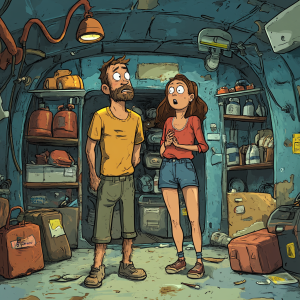
Stock up on self-reliance, not fear
Rule #4: Don’t Prepare to Be Miserable
I get it—budget constraints are real. But if your idea of preparedness involves living on the bare minimum and eating nothing but beans and rice for months, we need to talk. That’s not preparing to thrive; that’s preparing to make your family wish for the zombie apocalypse instead.
Being prepared on a budget doesn’t mean you have to embrace misery as a lifestyle choice. Start small, build smart, and remember: if you wouldn’t want to live like that for a week of camping, you definitely won’t want to live like that during an actual long-term crisis.
Stock up on what you already eat; make sure that you’re familiar with your supplies in every way, and stay on top of your skills.
Rule #5: Stock Peace, Not Fear
The final and most important rule: stop stockpiling fear. Fear is like that relative who shows up uninvited and eats all your snacks—it’s not helpful, and it makes everything worse. Instead of preparing for the end of the world, prepare for the continuation of life—just with more skills and less dependence on Amazon Prime.
The Way Forward (Now With 100% Less Panic)
The preparedness world is changing, folks. Ideally, and originally conceived, we’re moving away from the “build a bunker and fill it with bullets” mentality toward something more sustainable, practical, and—dare I say it—enjoyable. It’s about building a life that’s resilient enough to handle challenges while being comfortable enough to enjoy every day.
Remember: you’re not preparing for doomsday; you’re preparing for Tuesday. And Wednesday. And all the days after that. Build your skills, grow your community, and maybe plant a garden (just try not to kill the basil this time).
So take a deep breath, put down the survival guide written by someone who’s clearly never had to eat their own cooking, and ask yourself: Are you building a lifestyle of sustainable self-sufficiency, or are you just collecting stuff that will make your garage sale really interesting someday?
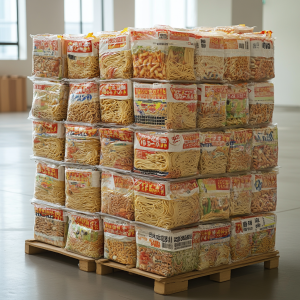
Pallets of ramen noodles are not a viable preparedness strategy
The choice—and the journey—is yours. And hey, if the zombies do show up, at least you’ll have more than just a whistle collection to deal with them.
[Author’s Note: Want more preparedness wisdom (and possibly more questionable humor)? Check out my full video presentation on these five fundamental rules, where we dive deeper into each principle and share some stories that definitely won’t end up on my prepping resume.]
Join our community on Facebook www.facebook.com/groups/preparednesspro
Check out our Facebook page: www.facebook.com/preparednesspro
